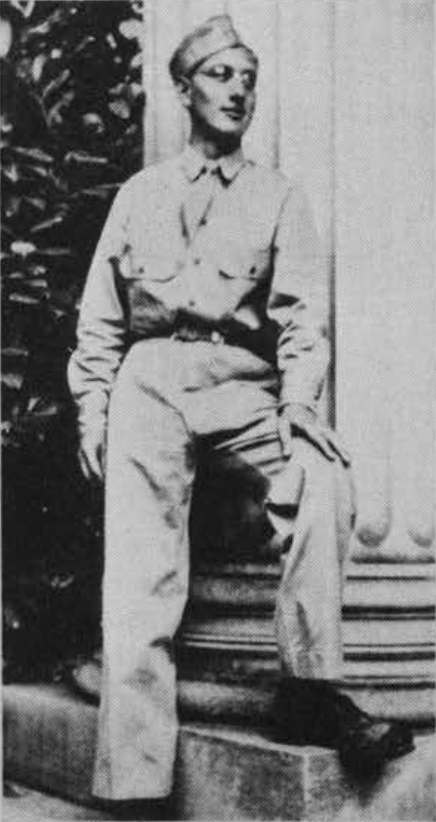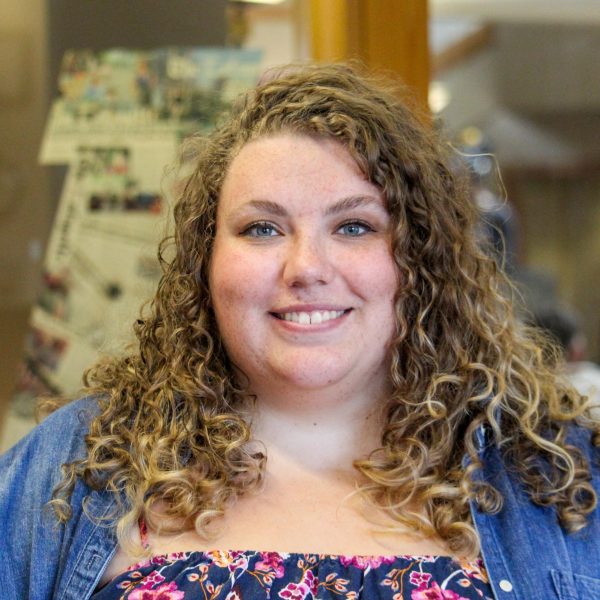Former secretary of state and national security advisor Henry Kissinger died last week at age 100. Kissinger, despite his worldwide acclaim and disdain, was no stranger to Lafayette — he attended the college for a year during World War II and earned an honorary degree in 1984.
Kissinger’s year on College Hill began when he was assigned to the Army Specialized Training Program for two terms in 1944. The program sought to create a wealth of highly educated military men who would have the necessary skills to assist in the war effort.
“The army has been increasingly handicapped by a shortage of men possessing desirable combinations of intelligence, aptitude, education, and training in fields such as medicine, engineering, languages, science, mathematics, and psychology, who are qualified for service as officers of the Army,” General George Marshall wrote in an April 1943 publication by the War Department. “The Army Specialized Training Program was established to supply the needs of the Army for such men.”
A 2014 edition of the Lafayette Alumni Magazine notes that Lafayette was “one of 36 academic institutions to be a training center for engineering and aviation cadets.” Other notable names in the nationwide program included actor Mel Brooks, former New York City Mayor Ed Koch, writer Kurt Vonnegut and Bob Dole, the respected former U.S. Senator from Kansas, though these men did not attend Lafayette’s program.
Kissinger’s selection for the Army Specialized Training Program was based on his outstanding aptitude test scores and, according to biographer Walter Isaacson, Kissinger stood out even among the best and brightest as a man of particular genius.
“Even among the brains plucked out of the army, he was considered brainy,” Isaacson wrote in his 1992 biography of Kissinger. “He was called upon to tutor the other students in a variety of subjects, especially calculus and physics.”
Isaacson wrote that Kissinger aced all 12 of his courses during his term, even earning a perfect 100 in his chemistry course.
Charles Coyle ‘50, Kissinger’s roommate during his time at the college, confirmed Isaacson’s story.
“He didn’t read books,” Coyle wrote in the February 1973 edition of The Lafayette Alumnus. “He ate them, with his eyes, his fingers, with his squirming in the chair or bed, and with his mumbling criticism.”
“Most of us complained about the mystery of the courses, the lack of preparation time, the military interruptions and the inadequate temporary teaching staff,” Coyle continued. “Henry easily excelled with his A+’s, but personally accepted them only as a passing grade.”
In April 1944, the Army canceled the training program — it needed bodies on the frontlines, and the brainiacs were called up. This wouldn’t be the end of Kissinger’s time on campus, however. He would return in 1984 to address the Marquis Society of donors to the college and receive his honorary doctor of laws.
Kissinger was introduced at the event by his friend and former White House colleague William E. Simon ‘52, who served as the Secretary of the Treasury while Kissinger served as the Secretary of State in 1974.
Simon, who was a member of the board of trustees at the time, announced the $3 million donation that would fund the construction of the William E. Simon Center for Economics and Business on the same night.
According to the Oct. 19, 1984 issue of The Lafayette that covered the event, Kissinger spoke about the state of international affairs, calling particular attention to President Ronald Reagan’s progress with negotiations in the Soviet Union, and cautioned against “national masochism” — the belief that political issues have simple solutions, and if a country cannot achieve peace, it has done something wrong.
Elizabeth Barthold O’Brien ’86, who reported on the speech for The Lafayette, said that students at the time complained that they were not invited to see the famed diplomat speak.
“He probably was the first famous person that I ever shook hands with,” she said. “I got his autograph on the program. He signed it so I still have it.”
Kissinger was awarded his honorary degree by Simon and then-college President David W. Ellis.
Lafayette was not Kissinger’s only Lehigh Valley connection — his second wife, Nancy Maginnes Kissinger, was the first female trustee at Lehigh University, where Kissinger earned an additional honorary degree in 1977 and spoke at a graduation ceremony in 1980.
Trebor Maitin ’24 contributed reporting.























































































































Chris Wain • Dec 18, 2023 at 4:18 pm
Hi Maddie Great article about that continuing connection. The story I heard about how this was discovered: Kissinger had made some passing comment about Lafayette in 1972 or 73, and Dr. Hart, head of the chemistry department, still had all of his grade books. He checked the ones from the 1940s and found HK’s name.
It’s also good that The Lafayette helped revive this story (whatever we think of Kissinger himself). When I came back for a reunion five years ago and went on a tour of that chateau that the College owns on Paxinosa Ridge, the person giving the tour showed us the guest book with Kissinger’s signature, but didn’t seem to have any of the back story.
Best regards and keep up the reporting
Chris Wain ’73, your predecessor editor in chief (1972-3)
Jeffrey Ruthizer '62 • Dec 8, 2023 at 5:02 pm
Another famous attendee of the Lafayette army training program during the Second World War along with Kissinger was the future US Senator from Idaho, Frank Church. He paid a visit to the campus during his time in the Senate and spoke at a convocation in Colton Chapel when I was a student of his earlier time at Lafayette College. The army program is described in the late Professor Al Gendebien’s (’34) Volume Three of The Biography Of A College pp 163-168